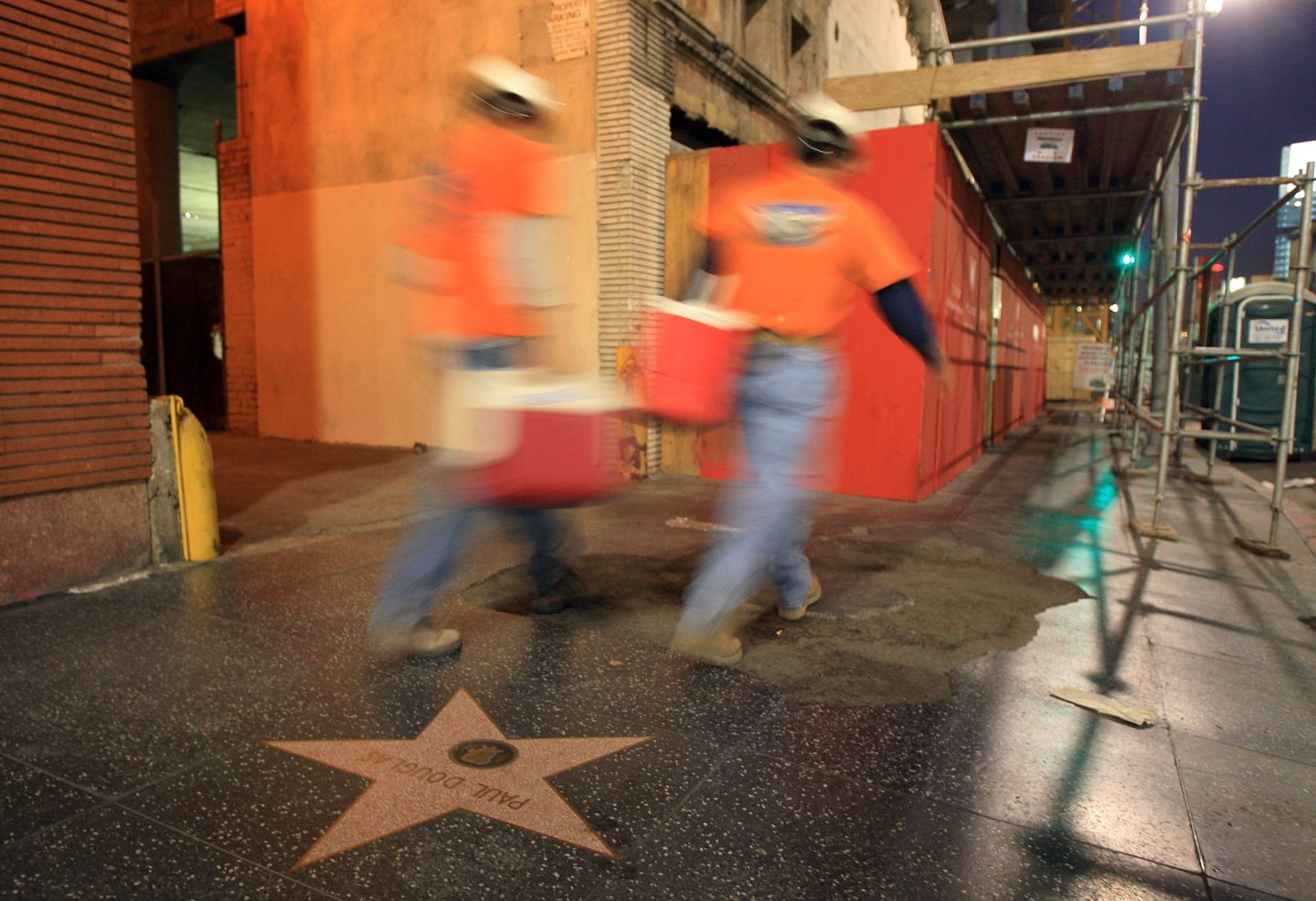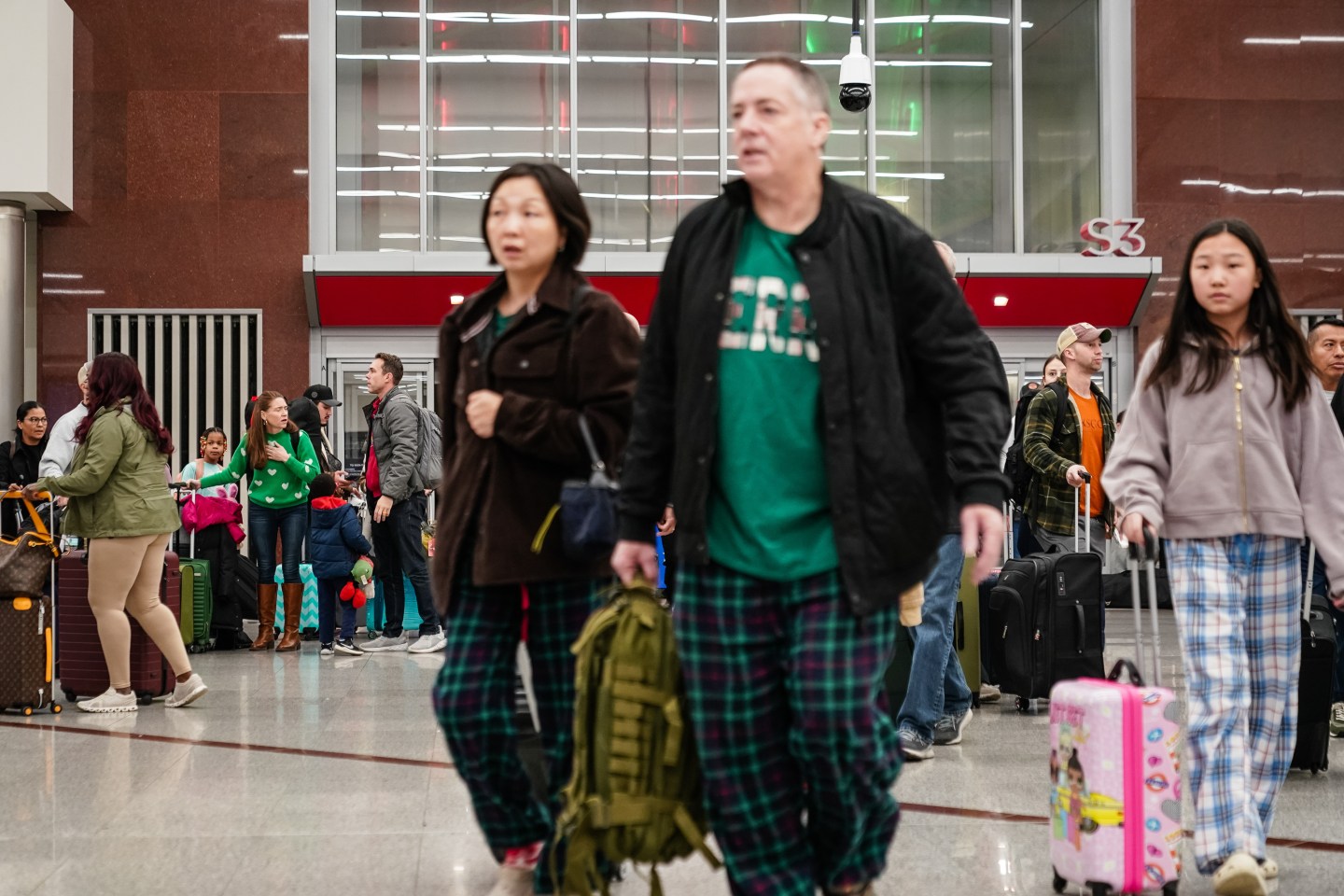Subscribe to Fortune’s Outbreak newsletter for a daily roundup of stories on the coronavirus and its impact on global business.
Clear spring skies, warm weather, and blooming fields of daffodils and bluebells would—in any other year—see James Hearle taking packs of London’s poshest pooches to the countryside for their ideal day out. He is after all known as the dog man for London’s elite.
A sequence of personal crises made him reevaluate corporate life with the U.K.’s major retailers, retrain as a master trainer at the U.K.’s Guild of Dog Trainers, and make the lifestyle change that finally led to the founding of his exclusive doggy day care, Dogs and Kisses, in 2009. “It’s a lifestyle I’ve taken on to be able to surround myself with my nine dogs and work from my home and bring as many dogs into my life as I can,” he says.
Over the past 11 years, Dogs and Kisses has developed into an exclusive monthly membership club—famous for its monthslong waiting list of dogs looking to join the best friends of powerful CEOs, heads of financial institutions, and celebrities. And all of whom live in London’s wealthiest Royal Borough of Kensington and Chelsea.
Dogs and Kisses members would usually have a chauffeured pickup in the morning for their run of countryside fields, chasing rabbits, lounging in a hydrotherapy pool and sun-beds in the garden, and curling up to rest in a glamorous country kitchen, before returning home. But this spring has changed everything for the U.K. pet care industry, and businesses like Dogs and Kisses, as man’s best friends enter their second month under coronavirus lockdown.

Fortune spoke with Hearle for a new series, The Coronavirus Economy, to ask about how COVID-19 has affected his business, his finances, his personal life, as well as his view of the future. The following Q&A has been condensed and lightly edited for clarity.
Fortune: What did normal life look like for you, and Dogs and Kisses, before the March lockdown?
Hearle: I run the business out of my home with my nine dogs, and we always have dogs boarding with us in the house as well. One of my staff lives with me, and she has three dogs, and in total I usually have up to seven staff members who work with me every day. All kinds of people love dogs. We serve CEOs, heads of financial institutions, actors, and pop stars. We also have people who send their dogs to us who don’t necessarily work. They have nannies for their children and housekeepers, but their dog wants a day out, which is great. That’s where we come in and service clientele who are elite but diverse.
Before the lockdown, most of my time was spent liaising with clients. I was also managing schedules, bookings, pickup and drop-offs for the dogs in day care and boarding, staff rosters, administration. I would also try to personally exercise some of our members. And then, I’d take personal time to exercise my two horses as well. On average, I was working around 16 hours; and with a house full of staff, resident dogs, and our day-care members. It’s usually so busy here from the time I wake up, I’ve never had a regular holiday like Christmas or Easter, or even the time to wake up to a lovely cup of coffee and just chill out.
When the pandemic hit, how did your life change?
We didn’t really notice much of a difference at first. We put in social distancing measures, and we were following guidelines from wearing gloves to go to each home for pickups to sanitizers in our vehicles, cleaning the dog beds everyday. When Boris Johnson announced the U.K. lockdown and closed all nonessential businesses, a lot of our clients contacted us minutes after the speech was over, panicked, declaring they were leaving London, and wouldn’t need our services at this time. Our bookings fell, and we had to close our doors for day care immediately. It’s the first time we’ve ever had to do this. I was absolutely petrified. We managed to persuade the owners of three dogs to let them indefinitely board with us in the countryside. They were originally going to put them on private jets and take them to other countries.
We live quite hand to mouth, and our margin isn’t much. Our rent’s astronomical, our overheads are sky-high. I tried to keep as many staff as I could, but I genuinely could not. I furloughed them as soon as the government announced its aid package for furloughed staff so they could keep getting paid. So it turns out I’m busier in this lockdown than I ever was before. Between my remaining staff member and myself, we are now doing the work that was done by seven people. I am doing all the manual labor, taking care of the dogs, maintaining our hygiene standards, business administration, and at the end of the day, I’ve also got to now personally care for the two horses that we have.
You have a high-end client base and a monthly fee model. Has that helped cash flows?
It’s been a mixed bag of people and their response to the crisis. A lot of people, even those running cash-rich businesses, are really scared and clinging to their money, especially with the uncertainty of how long this pandemic and a lockdown is going to last. Since we do a monthly fee, we would have, of course, ensured fees were not taken for no service. We had planned to credit unused days or allocate them to boarding when our day care was allowed to open back up again.
These fees are critical to our cash flows, in order to survive and be able to operate at the end of this. Some clients—including the head of a rather famous fashion company—threatened to pull their dog’s membership completely if the monthly model continued. Others who have fled to their second homes in the countryside, insist on paying us the monthly fee, which I think is so nice.

How are you holding up in the pandemic, personally?
I am so stressed on a daily basis that I am only sleeping about four hours every night and trying to figure out what bills I am going to allocate the tiny amount of money that is coming in to. I have my furloughed staff texting me daily, worrying whether they will have a job when they come back. I keep telling them, of course they are. I am worried because of the uncertainty of everything.
While before, my time was spent in huge part on the administration of the business, and about four or five hours with the dogs, it is now literally all day and night, every day. But this strange situation has also really reminded me about the core of the business, and I am looking at life in a different light. Walking every dog myself has been refreshing. I’m noticing issues in the business that slipped throughout the cracks, like extraordinarily high phone bills or astronomical waste of cleaning products. This is quite the opportunity to get a clear focus, identify unnecessary expenses, and economize.
I’m trying to embrace and make the most of it, because it is probably the only time ever this is going to happen in my lifetime. But social distancing has been the really hard part. While I live and breathe dogs, I work from home, we are boarding dogs all the time, my staff is usually around all day as well, and friends usually don’t appreciate 15 dogs creating havoc on visits. So I would visit friends quite a few times in the week, just to relax. But now, with it being quieter, I am learning to just relax in my own home.
Since the pandemic hit, I even thought about going back to my corporate job in retail. But I always wanted lots of dogs, and now that I have nine of my own, I can’t really get out of this business. Cost-wise, it would be unsustainable to go back to a corporate job, and I cannot get rid of my animals. This job doesn’t make you rich; it’s a lifestyle choice really, rather than a career.
When this is over, what do you think it will mean for a business like yours?
My fear is that a lot of companies with big offices have learnt that they can save money, because it has been proven that their employees can be productive at home. I am worried if we manage to survive and return after the lockdown, our day-care service will drop off as people work from home more permanently. But on the flip side, a lot of people who don’t stay with their dogs every day are probably now finding that their dogs are bouncing off the wall, with all the lockdown restrictions, and spending a serious amount of time with them.
The majority of my clients have reassured me that as soon as everything is back to normal, they’ll be back. Their dogs are bored and restless as there is nowhere for them to run and exercise. A few clients—like ones who own large hotels and restaurants—may be worse hit than most. Some who are my bread-and-butter clients have reduced their salaries to nothing to save their businesses and may take more time to recover. They’ll come back when they can.
I was never interested in multiple branches or franchising, even in the good times, since the standards I provide would be hard to replicate without a personal touch. So I am contemplating a pivot for the business to be centered more around boarding and back to my core skill as a master dog trainer. That’s what made us special when we started off, and it has almost got lost. I would need a rather big marketing push for that, and at this point, there is not enough money in the bank to seriously plan for that pivot. But I unless I can get more dogs to board with us now, as a business, we probably won’t survive past the middle of June.
More coronavirus coverage from Fortune:
—This famed economist doesn’t think we’re headed for another Great Recession
—South Korea has the most comprehensive coronavirus data. What it’s taught us so far
—10 questions about the 2020 election during the coronavirus pandemic, answered
—6 steps to sustainably flatten the coronavirus curve
—How hackers are exploiting the coronavirus—and how to protect yourself
—Hong Kong launches a surveillance operation to track suspected coronavirus patients
—Listen to Leadership Next, a Fortune podcast examining the evolving role of CEOs
—WATCH: The race is on to create a coronavirus antiviral drug and vaccine
Subscribe to Fortune’s Outbreak newsletter for a daily roundup of stories on the coronavirus and its impact on global business.











